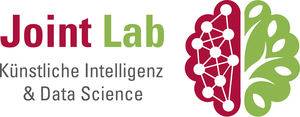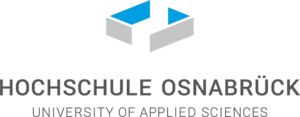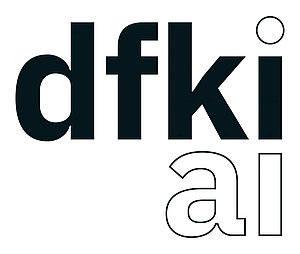In cooperation with the University of Osnabrück and the associated partners Osnabrück University of Applied Sciences, DFKI and Agrotech Valley Forum e. V., the ATB is training doctoral students at the interface of agricultural science and artificial intelligence. The Volkswagen Foundation is funding the cooperation as part of the “zukunft.niedersachsen” program with approximately 6.7 million euros.
Aims of the Joint Lab KI & DS
The main goal of the Joint Lab is to develop Artificial Intelligence (KI) & Data Science (DS) expertise, especially for agricultural technology issues. Predominantly, the partners want to advance the transfer of applications with Artificial Intelligence into agricultural practice through interdisciplinary collaboration and the training of PhD students with explicit practical relevance.
The Graduate College Joint Lab KI & DS
A total of 40 scientists from both institutions are involved in the joint research training group "Joint Lab Artificial Intelligence & Data Science". They will supervise twelve doctoral students and three postdocs.
Research focus of the Graduate College
- Artificial Intelligence and Data Science - method development and data analysis,
- Autonomous Systems - sensor networks, robot control and data acquisition, and
- Hybrid Process and System Modeling - Application-based development of process controls and formation of digital twins.
A list of specific research topics can be accessed here:
Context
Food security and adaptation to climate change
Food security in times of climate change will be directly affected by agricultural technology and the bioeconomy. They impact the fundamental issues that will determine the future of society's livelihoods and economies. To address these key issues, adaptation to climate change requires innovative methods of animal husbandry, crop production, sustainability, and environmental protection in agriculture. In particular, this requires precise land management adjusted to the natural environment. At the same time, increasing population numbers require an increase in agricultural yields as well as the efficient use of resources.
Tasks of the Joint Lab KI & DS
The core idea of the Joint Lab is to meet these challenges through application-specific AI and data science technologies. The focus here is on optimization, efficiency enhancement and automation of agricultural processes. As an initial focus, the Joint Lab will primarily train PhD students and postgraduates in AI and Data Science in agricultural engineering as well as from agricultural, engineering and environmental sciences. In perspective, the focus will be on the already mentioned establishment of an ATB branch office in Osnabrück.
Competences
The work and research program is based on the many years of preliminary work and resources of the ATB and the University of Osnabrück: "On the part of the ATB, the research topics of the Joint Lab are precision plant cultivation, precision animal husbandry, food processing and nutrition, biomaterials and residue management. In addition, there will be measurement and control technology as well as data science," said the spokespersons of the ATB, Prof. Dr.-Ing. Cornelia Weltzien and Prof. Dr. Barbara Sturm. The Osnabrück University of Applied Sciences and the German Research Center for Artificial Intelligence (DFKI) Lower Saxony are also involved in the Joint Lab in the field of AI and Data Science. The new doctoral students will conduct research at the Coppenrath Innovation Center (CIC) and thus in close proximity to the DFKI.
The University of Osnabrück contributes its competences in the fields of AI and Data Science from Computer Science, Cognitive Science and Mathematics, which are complemented by Environmental Systems/Biological Sciences. In particular, the researchers will apply methods of machine learning, knowledge-based approaches, optimization and data mining. Structurally, these topics are anchored in the university's AI campus as well as, for example, through the interdisciplinary research center Data Science; they have already been at the core of the university's profile shaping for many years.
All participants can be accessed on the pages of the Joint Lab KI & DS.





